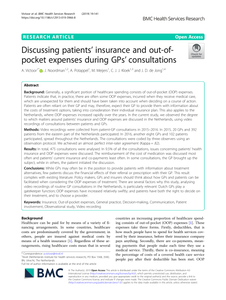Background: Dental fear and uncooperative behavior can hinder dental treatment quality. Pediatric Procedural Sedation and Analgesia (PPSA) is used to facilitate treatment when the coping capacity is exceeded. Out-of-hospital PPSA has been associated with more adverse outcomes compared to when it is used in hospital-based settings. The updated Dutch PPSA guidelines have increased costs and raised concerns about the accessibility of specialized high-quality dental care for children in the Netherlands. This study aimed to investigate the impact of the updated 2017 guidelines on the occurrence rate of adverse events during PPSA in twelve Dutch dental clinics. Methods: The data of 25,872 children who were treated at twelve dental clinics between 1997 and 2019 were analyzed. A logistic two-level mixed-effects model was used to estimate the updated guidelines’ impacts on adverse events. Results: The OR of the occurrence rate of an adverse event adjusted for age, weight, and duration of treatment was 0.75 (95% CI 0.64–0.89) after the implementation of the updated guidelines. This outcome was significant with p = 0.001, indicating a protective effect. Conclusions: Our findings demonstrate that there was a significant reduction in adverse events after the implementation of the updated guideline and highlight the importance of adhering to evidence-based practices in out-of-hospital dental clinics.
DOCUMENT

Background: Generally, a significant portion of healthcare spending consists of out-of-pocket (OOP) expenses. Patients indicate that, in practice, there are often some OOP expenses, incurred when they receive medical care, which are unexpected for them and should have been taken into account when deciding on a course of action. Patients are often reliant on their GP and may, therefore, expect their GP to provide them with information about the costs of treatment options, taking into consideration their individual insurance plan. This also applies to the Netherlands, where OOP expenses increased rapidly over the years. In the current study, we observed the degree to which matters around patients' insurance and OOP expenses are discussed in the Netherlands, using video recordings of consultations between patients and GPs. Methods: Video recordings were collected from patient-GP consultations in 2015-2016. In 2015, 20 GPs and 392 patients from the eastern part of the Netherlands participated. In 2016, another eight GPs and 102 patients participated, spread throughout the Netherlands. The consultations were coded by three observers using an observation protocol. We achieved an almost perfect inter-rater agreement (Kappa = .82). Results: In total, 475 consultations were analysed. In 9.5% of all the consultations, issues concerning patients' health insurance and OOP expenses were discussed. The reimbursement of the cost of medication was discussed most often and patients' current insurance and co-payments least often. In some consultations, the GP brought up the subject, while in others, the patient initiated the discussion. Conclusions: While GPs may often be in the position to provide patients with information about treatment alternatives, few patients discuss the financial effects of their referral or prescription with their GP. This result complies with existing literature. Policy makers, GPs and insurers should think about how GPs and patients can be facilitated when considering the OOP expenses of treatment. There are several factors why this study, analysing video recordings of routine GP consultations in the Netherlands, is particularly relevant: Dutch GPs play a gatekeeper function; OOP expenses have increased relatively swiftly; and patients have both the right to decide on their treatment, and to choose a provider.
DOCUMENT

This study evaluated the Toddler Oral Health Intervention (TOHI) for preventing early childhood caries (ECC) by 48 months. TOHI, an add-on to standard care in well-baby clinics (WBCs), aims to reduce ECC incidence and severity.
MULTIFILE
